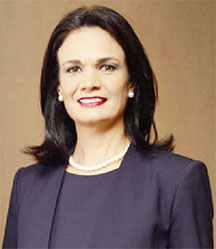HAVANA (Reuters) – Panamanian Foreign Minister Isabel Saint Malo personally invited Cuban President Raul Castro to the Summit of the Americas her nation is hosting in April, according to a Cuban government statement published yesterday.

Saint Malo met Castro on Thursday during a one-day visit to Cuba, where she delivered a verbal invitation that puts the United States on the spot diplomatically.
Washington, which initiated the summits in 1994, blocked Cuba’s invitation to the previous six events, saying the Communist-ruled country’s one-party political system was not democratic.
Panama’s invitation amounts to a diplomatic coup for Cuba and follows demands by governments of many Latin American and Caribbean countries that it be invited.
“The United States faces a tough choice: either alter its policy toward Cuba or face the virtual collapse of its diplomacy toward Latin America,” said Richard Feinberg, a senior fellow of the Washington-based Brookings Institution who helped organise the first summit when working for the Clinton administration.
Saint Malo was in Washington earlier this month, when she informed Secretary of State John Kerry that Cuba would be invited to the summit.
State Department spokeswoman Jen Psaki took issue with the invitation during a September 2 press briefing, noting that all participants at a summit in 2001 had agreed that respect for the democratic system was an essential condition of attendance at such events.
“So we should not undermine commitments previously made, but should instead encourage – and this is certainly our effort – the democratic changes necessary for Cuba to meet the basic qualifications,” Psaki added.
The Cuban government statement called Thursday’s meeting “cordial” and said it focused on regional and international issues.
Saint Malo “expressed the interest of her government to advance bilateral relations and count on the presence of Cuba at the 7th Summit of the Americas … an invitation that was received positively by the Cuban president,” the statement said.
Cuba has normal relations with every country in the Western Hemisphere except the United States, which has maintained comprehensive sanctions on the Caribbean island for more than half a century.
At the same time, Cuba is the only country in the Western Hemisphere that does not have a multi-party system.





